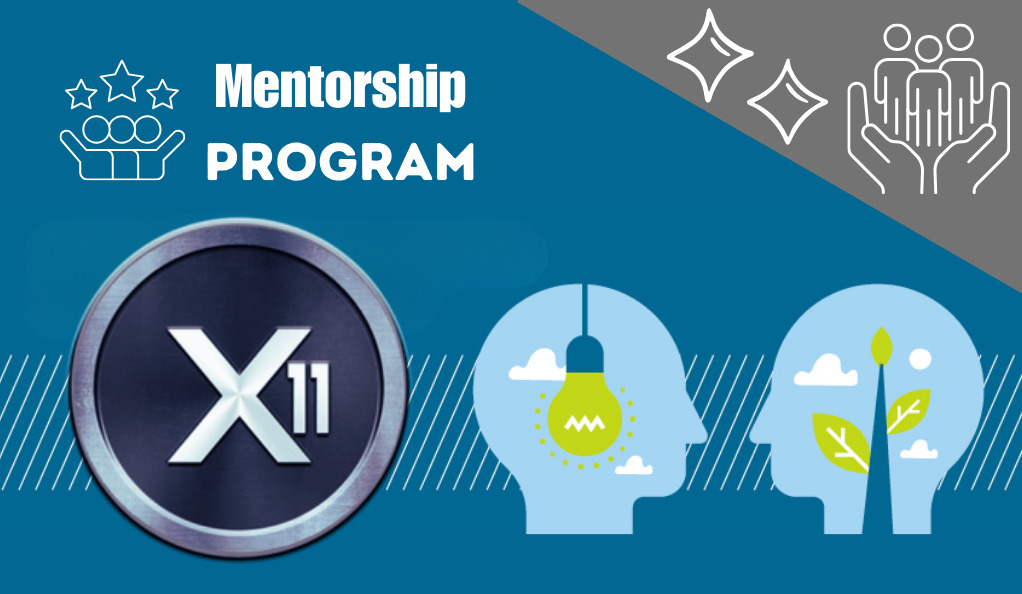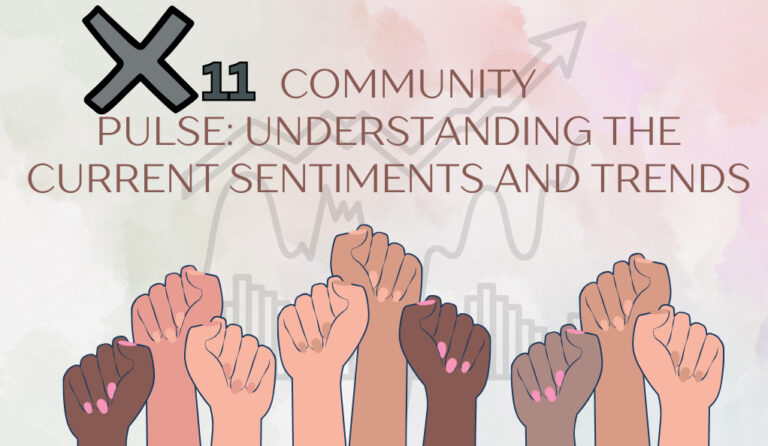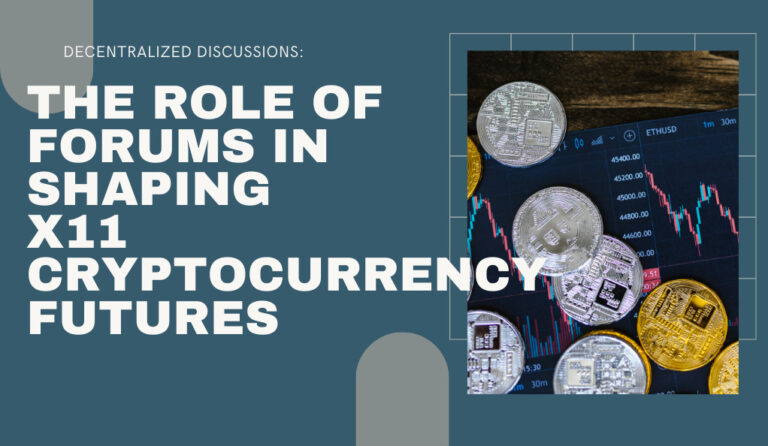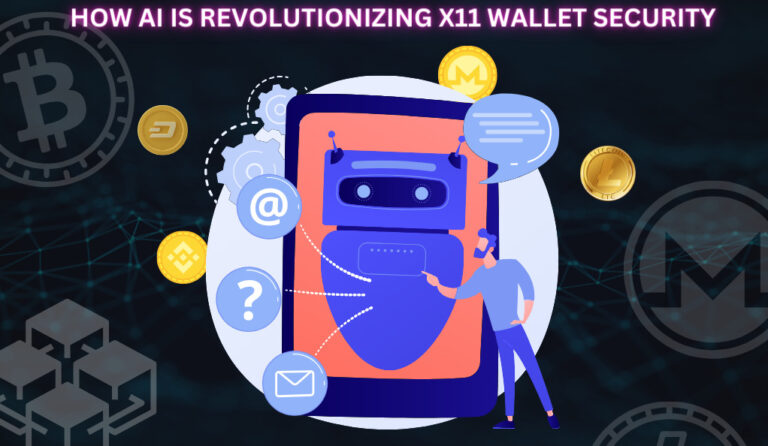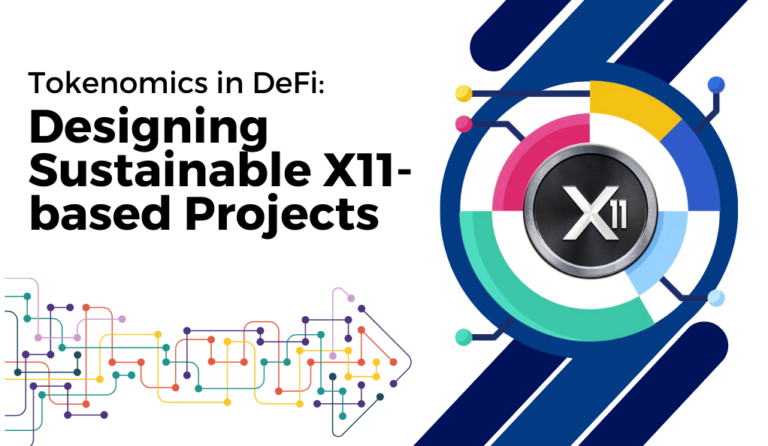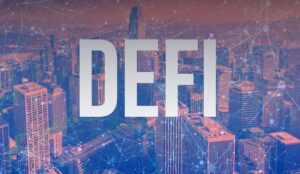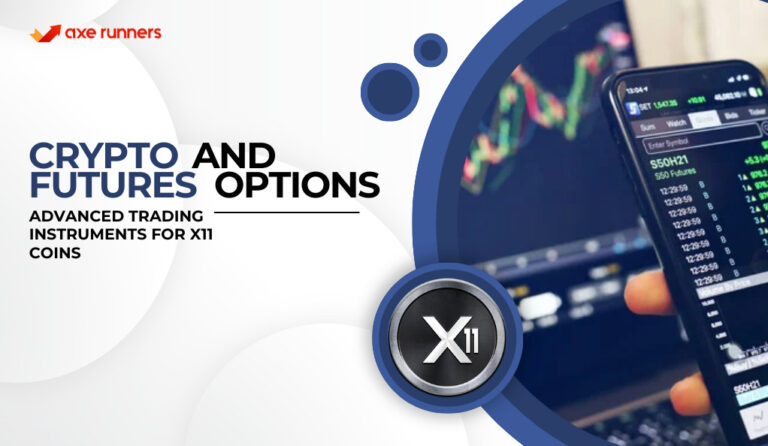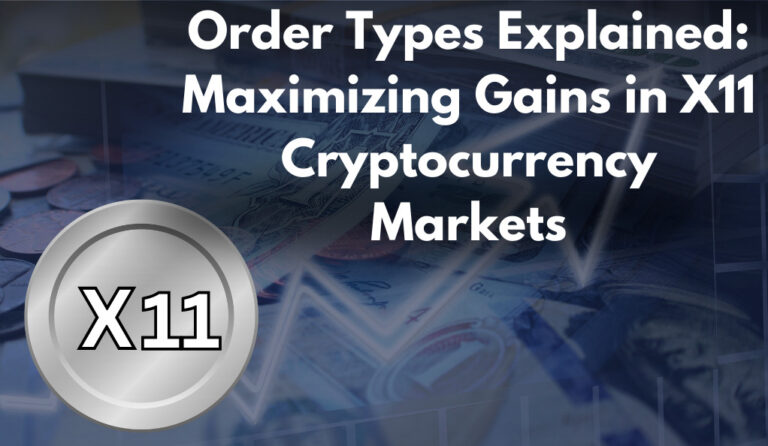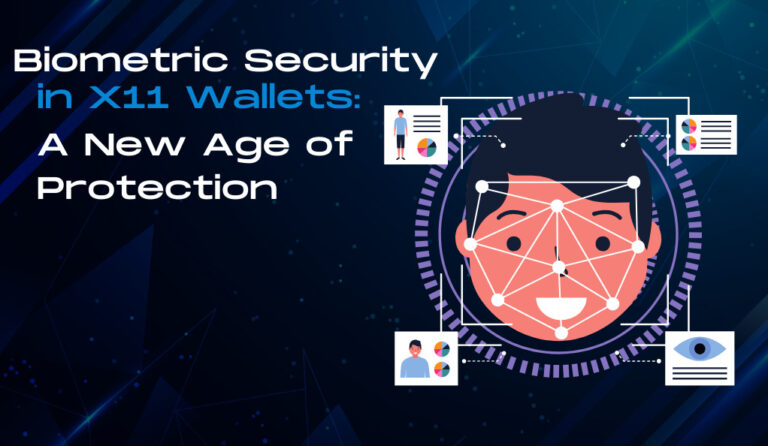The blockchain industry, with its rapid advancements and transformative potential, has become a focal point for tech enthusiasts and developers worldwide. As this technology continues to evolve, there’s an increasing demand for skilled professionals who can navigate its complexities. Enter the X11 Mentorship Programs—a beacon for aspiring blockchain developers.
What are X11 Mentorship Programs?
X11 Mentorship Programs are specialized training initiatives designed to guide budding blockchain developers through the intricate world of blockchain technology. Named after the X11 algorithm, which is known for its security and efficiency in cryptocurrency mining, these programs are more than just about coding. They encompass a holistic approach to blockchain development, ensuring that mentees understand both the technical and practical aspects of this revolutionary technology.
Why are they crucial for the blockchain industry?
The blockchain industry is at a pivotal juncture. With increasing adoption across sectors like finance, healthcare, and supply chain, there’s a pressing need for developers who not only understand the technology but can also innovate and adapt. X11 Mentorship Programs fill this gap by:
- Bridging the Knowledge Divide: They ensure that new entrants are not overwhelmed by the vastness of blockchain technology, providing them with structured learning paths.
- Fostering Innovation: By pairing mentees with experienced mentors, these programs encourage fresh perspectives and innovative solutions to real-world challenges.
- Building a Robust Community: These programs are not just about individual growth. They aim to build a community of like-minded individuals who can collaborate, share knowledge, and drive the blockchain revolution forward.
The Rise of Blockchain Technology
Blockchain, often hailed as the ‘next internet,’ has seen an astronomical rise in the past decade. From its humble beginnings as the underlying technology for cryptocurrencies, it has expanded its horizons, promising to revolutionize various sectors.
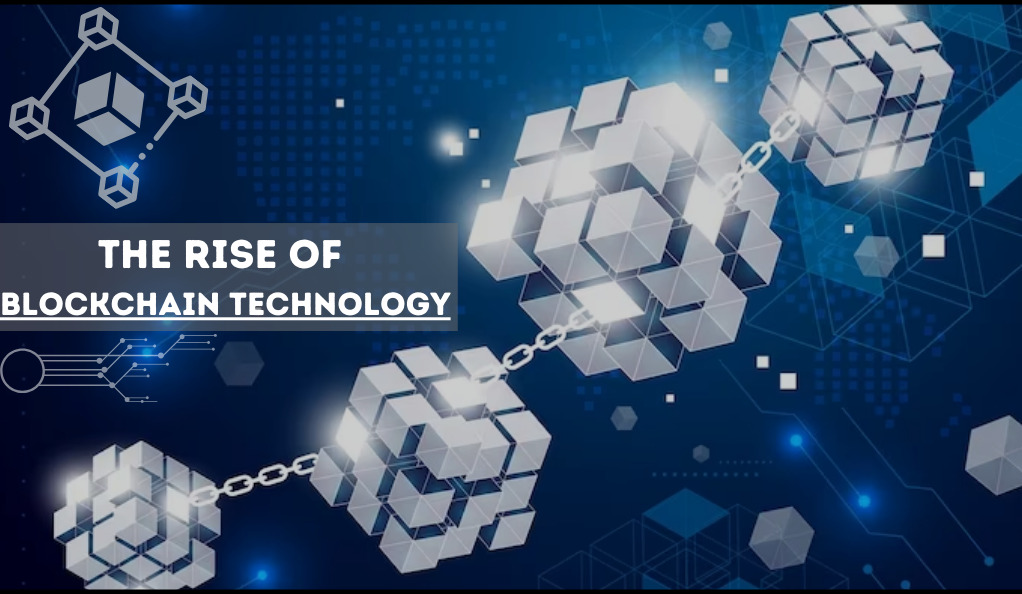
Historical Context of Blockchain’s Growth
The genesis of blockchain can be traced back to 2008 when an individual (or group) under the pseudonym Satoshi Nakamoto introduced Bitcoin. While Bitcoin was the first application of blockchain, the technology itself was the real innovation. It offered a decentralized ledger system, ensuring transparency and security without the need for intermediaries.
Over the years, the applications of blockchain have diversified. Ethereum introduced the concept of smart contracts, allowing for programmable transactions. This opened the doors for Decentralized Applications (DApps) and Decentralized Autonomous Organizations (DAOs), further broadening the scope of blockchain.
The Potential Impact on Various Industries
Blockchain’s decentralized nature makes it a perfect fit for numerous industries:
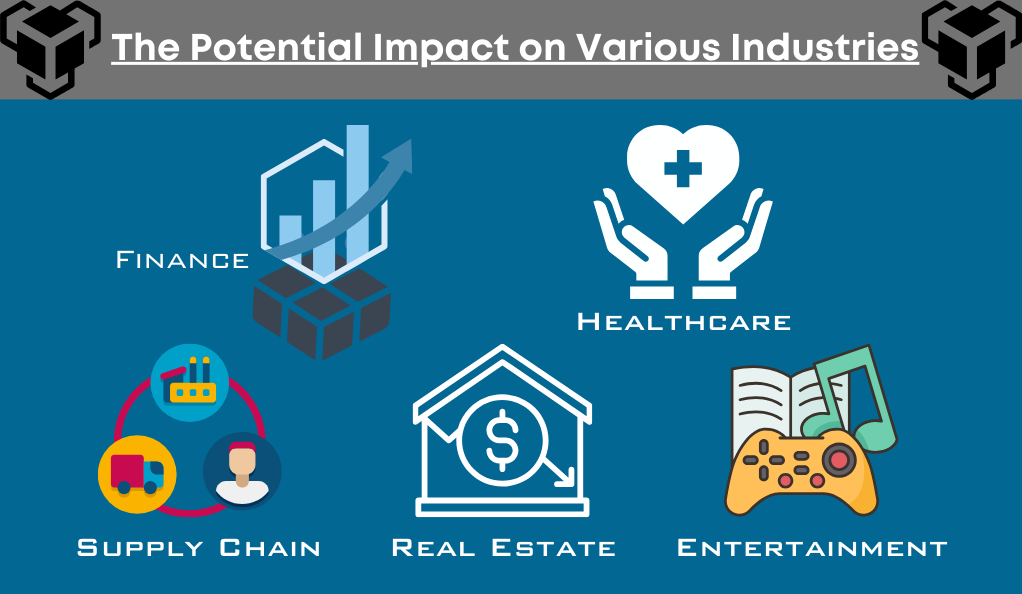
- Finance: Decentralized finance (DeFi) platforms are offering alternatives to traditional banking systems, from loans to asset trading.
- Supply Chain: Blockchain provides a transparent and tamper-proof record, ensuring the authenticity of products and reducing fraud.
- Healthcare: Patient records can be securely stored and accessed on blockchain, ensuring data privacy and interoperability.
- Real Estate: Property transactions can be streamlined using smart contracts, reducing the need for middlemen and ensuring transparency.
- Entertainment: Artists and creators can use blockchain for digital rights management, ensuring they get their rightful royalties.
Why Mentorship Matters in Blockchain Development
The world of blockchain, while promising, is riddled with complexities. For newcomers, the sheer depth of the technology can be daunting. This is where mentorship plays a pivotal role, acting as a guiding light for those eager to make their mark in the blockchain realm.
The Challenges Faced by Budding Blockchain Developers
- Technical Intricacies: Blockchain is not just about coding; it involves understanding cryptographic principles, consensus algorithms, and decentralized systems.
- Rapid Evolution: The blockchain landscape is constantly evolving. New platforms, tools, and practices emerge regularly, making it challenging for developers to stay updated.
- Practical Application: Theoretical knowledge is not enough. Developers need hands-on experience to understand how blockchain solutions work in real-world scenarios.
- Networking: Building connections in the industry is crucial for career growth, but it can be challenging for newcomers to find the right opportunities.
| Aspect | Description |
|---|---|
| Guided Learning | Mentors provide a structured learning path, ensuring that mentees grasp the foundational concepts before diving into advanced topics. |
| Experience Sharing | Mentors, with their wealth of experience, can share insights, best practices, and common pitfalls, enriching the learning process. |
| Hands-on Projects | Under the guidance of mentors, mentees can work on real-world projects, bridging the gap between theory and practice. |
| Networking Opportunities | Mentors can introduce mentees to industry experts, events, and conferences, helping them build valuable connections. |
Spotlight on Successful Blockchain Mentors
The blockchain industry owes much of its growth and innovation to trailblazers who not only mastered the technology but also took it upon themselves to guide the next generation. Let’s delve into the profiles of some leading blockchain mentors and their contributions to the mentorship community.
Profiles of Leading Blockchain Mentors
- Swayam Shah: A research lead at BNB Chain, Swayam has been a beacon for many aspiring blockchain developers. With a focus on practical application, he has mentored numerous individuals, helping them transform their theoretical knowledge into tangible skills.
- Yi-Ju Chung: As a staff software engineer at Coinbase, Yi-Ju has over a decade of experience in the industry. She has been instrumental in bootstrapping new teams and has a penchant for teaching, making her a sought-after mentor in the blockchain community.
- Ghali Elkasri: A three-time founder and blockchain advisor, Ghali has a rich entrepreneurial experience in the blockchain domain. His mentorship style is hands-on, guiding mentees through the nuances of product strategy and bootstrapping.
- Rafaela Azevedo: The CEO and co-founder of The Chain Academy, Rafaela has over 16 years of experience in QA and test automation in the blockchain sector. Her mission is to bring more people into the Web3 community, making her mentorship invaluable for those looking to specialize in this area.
Their Contributions to the Mentorship Community
These mentors excel in knowledge sharing through workshops, webinars, and open sessions, extending their expertise to a broader audience. They offer valuable hands-on experience with real-world projects, exposing mentees to practical challenges and solutions. Moreover, their strong networking support introduces mentees to industry events and professionals, fostering vital connections for success. Their mentorship consistently sparks innovation, contributing to the growth of the blockchain industry through the birth of fresh ideas, projects, and startups.
Benefits of Joining an X11 Mentorship Program
In the dynamic world of blockchain, having a mentor can be a game-changer. The X11 Mentorship Programs, in particular, offer a plethora of advantages for those eager to delve deep into this technology. Let’s explore the myriad benefits that come with being a part of these programs:
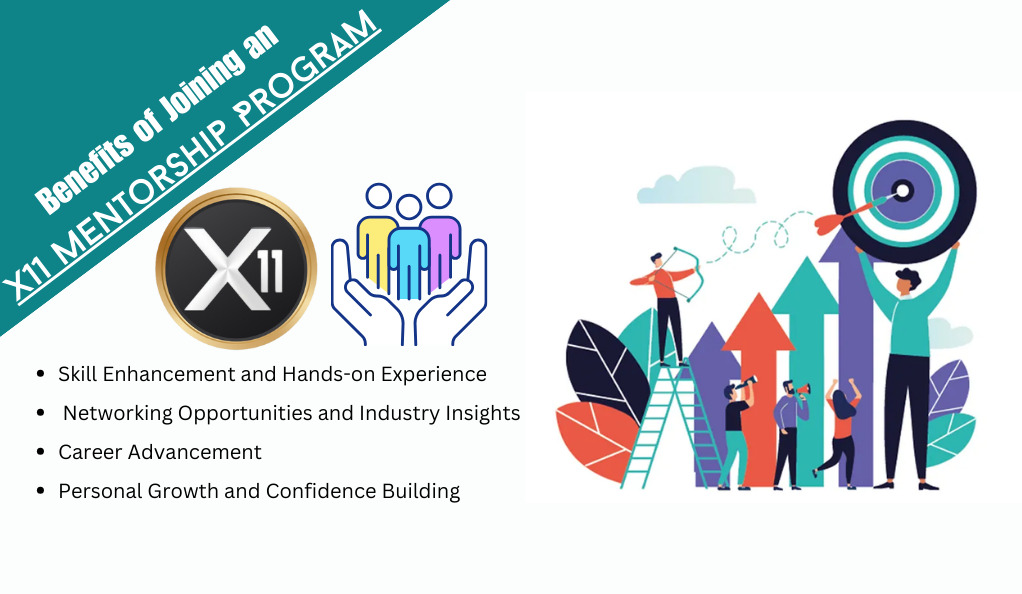
Skill Enhancement and Hands-on Experience
- Tailored Learning: Each mentee’s journey is unique. The program offers customized learning paths, ensuring that individuals get the knowledge they need at their own pace.
- Practical Exposure: Beyond theoretical knowledge, mentees get to work on real-world blockchain projects. This hands-on experience is invaluable in understanding the practical challenges and nuances of the technology.
Networking Opportunities and Industry Insights
Building Connections: Being a part of the X11 Mentorship Program provides access to a vast network of industry professionals, from seasoned developers to startup founders.
Insider’s Perspective: Mentors often share their experiences, challenges, and insights from their time in the industry, giving mentees a holistic view of the blockchain world.
Career Advancement
Mentorship goes beyond learning; it’s a pathway to career advancement. By engaging in live projects, mentees construct impressive portfolios that demonstrate their capabilities to prospective employers. Additionally, mentors frequently endorse their standout mentees to industry contacts, unlocking job opportunities that might otherwise remain out of reach.
Personal Growth and Confidence Building
- Problem-solving Skills: Tackling real-world challenges under the guidance of a mentor enhances problem-solving skills, a critical asset in any tech-related field.
- Boosted Confidence: With each project and challenge overcome, mentees gain confidence in their abilities, preparing them to take on bigger roles in the blockchain industry.
Real-world Success Stories
The true testament to the efficacy of any mentorship program lies in the success stories of its participants. The X11 Mentorship Program has been instrumental in shaping the careers of many budding blockchain developers. Here are a few inspiring stories that highlight the transformative power of mentorship:
Alexa’s Journey from Novice to Expert
When Alexa first joined the X11 Mentorship Program, she had a basic understanding of blockchain but was unsure of how to apply it in real-world scenarios. Under the guidance of her mentor, she worked on developing a decentralized voting system for local elections. Today, Alexa leads a team of developers at a renowned blockchain startup, and her voting system is being piloted in three cities.
Rohan’s Transition into Blockchain
Rohan, a software developer with five years of experience in traditional software development, was keen to transition into blockchain. Through the program, he was introduced to the intricacies of smart contracts. His first project, a decentralized marketplace for artists, garnered attention from investors. Rohan now runs his own blockchain-based startup, helping artists get fair compensation for their work.
Maya’s Innovation in Healthcare
With a background in healthcare management, Maya was intrigued by the potential of blockchain in medical record management. Her mentor guided her through the process of creating a secure, decentralized system for patient data storage and access. Her innovation caught the attention of several hospitals, and she’s now collaborating with them to implement her system on a larger scale.
Liam’s Leap into Decentralized Finance (DeFi)
Liam, a finance graduate, was always curious about the fusion of finance and technology. The X11 Mentorship Program introduced him to the world of DeFi. With his mentor’s assistance, he developed a DeFi lending platform that offers microloans to small businesses. His platform has since facilitated loans for over 500 businesses, earning him recognition in the fintech community.
Looking Ahead: The Future of Blockchain Development and Mentorship
Blockchain, often dubbed as a disruptive technology, is still in its nascent stages. As it continues to evolve, the demand for skilled professionals in this domain is set to surge. Mentorship, as a catalyst for nurturing talent, will play an even more significant role in shaping the future of blockchain.
Predictions for the Next Decade in Blockchain Technology
- Wider Adoption Across Sectors: Beyond finance and supply chain, blockchain is poised to revolutionize sectors like real estate, education, and public services, making its understanding crucial for professionals across fields.
- Integration with Other Technologies: The convergence of blockchain with technologies like AI, IoT, and AR/VR will lead to the emergence of hybrid solutions, requiring developers to possess interdisciplinary knowledge.
- Regulatory Evolution: As governments and institutions grapple with the implications of a decentralized world, there will be a growing need for blockchain experts who understand the nuances of regulation and compliance.
- Rise of Decentralized Autonomous Organizations (DAOs): DAOs, entities run through rules encoded as computer programs, will become more prevalent, necessitating a deep understanding of both technical and governance aspects.
How Mentorship Programs Will Evolve to Meet Future Demands
Specialized Tracks: As blockchain diversifies, mentorship programs will offer specialized tracks catering to specific sectors or technologies, allowing mentees to delve deep into niche areas.
Global Collaboration: With the decentralized ethos of blockchain, mentorship programs will foster global collaborations, bringing together mentors and mentees from different parts of the world.
Emphasis on Ethics and Governance: As blockchain challenges traditional power structures, mentorship will emphasize the ethical implications and governance models associated with decentralized systems.
Continuous Learning Platforms: Given the rapid evolution of blockchain, mentorship won’t just be for beginners. Continuous learning platforms will emerge, catering to professionals at various stages of their careers.
Conclusion
As the digital landscape continues to evolve, blockchain stands out as a transformative force, reshaping industries and redefining paradigms. Mentorship, particularly through initiatives like the X11 Mentorship Program, plays an indispensable role in ensuring that the next generation of developers is well-equipped to navigate this dynamic terrain.
These programs not only impart technical knowledge but also instill a sense of purpose, ethics, and vision. Looking ahead, as blockchain’s potential unfolds further, the symbiotic relationship between this revolutionary technology and mentorship will be pivotal in fostering innovation, collaboration, and sustainable growth in the digital realm.
At axerunners.com, our goal is to furnish well-rounded and trustworthy information regarding cryptocurrency, finance, trading, and stocks. Nonetheless, we avoid providing financial advice and instead encourage users to conduct their own research and meticulous verification.
Read More
